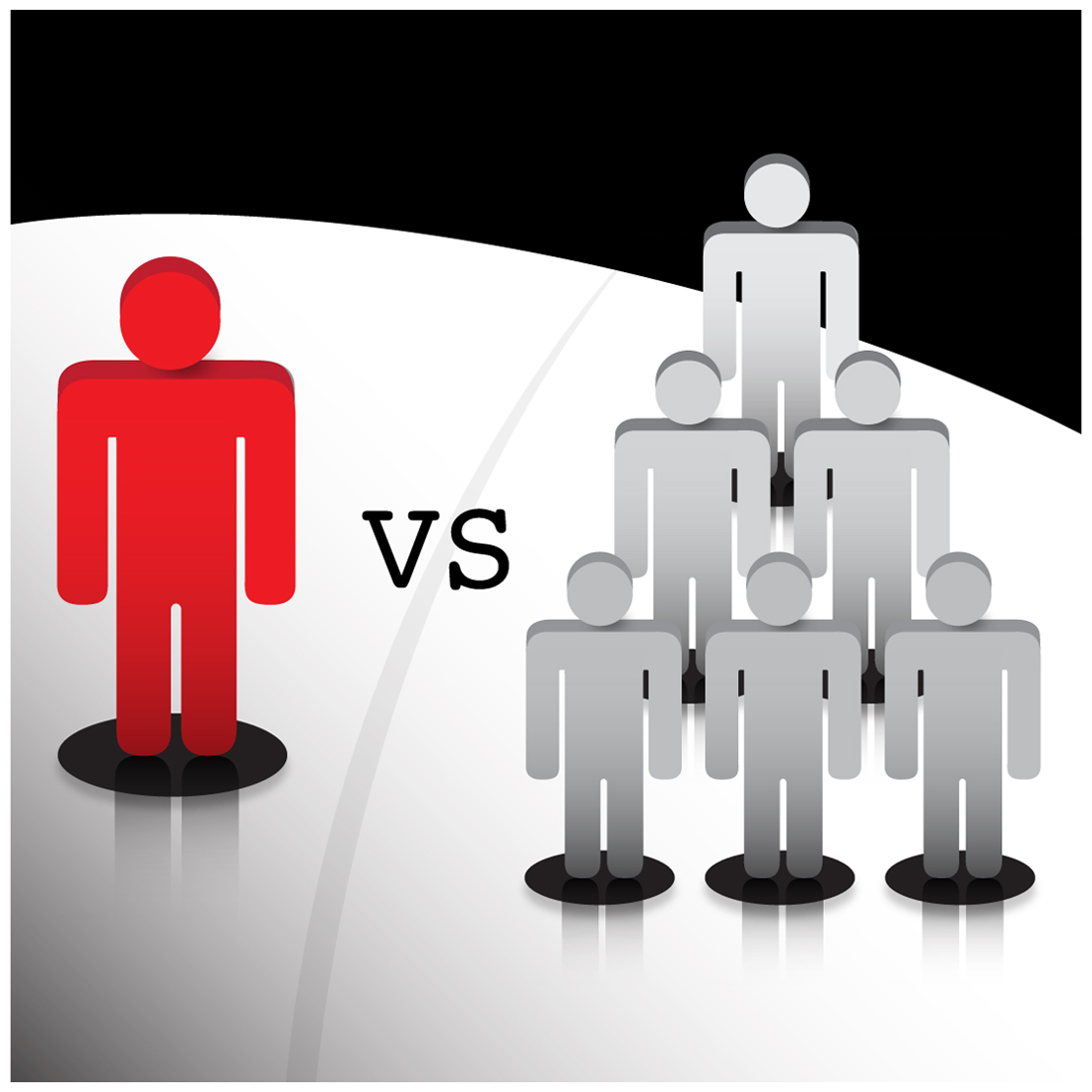Today’s society is far from the conforming to those utopian predictions made half a century ago. Instead, our present reality continuously re-enacts the horrors of history’s past, choosing bitter division over thriving unity. As we struggle through a particularly bloody year, it becomes more than ever necessary for human beings to look not only at the motives that drive individuals, but also at what defines humanity as a collective. What does it mean to belong to a group—whether local, domestic, or international? What does it mean to be a part of a country? What does it mean to be an individual? The answers to these questions will define the future of geopolitics and the way the world — as well as its individual parts — embrace an increasingly globalised identity.
In 1979, John Turner and Henri Tajfel published their seminal work on “Social Identity Theory”. This theory hypothesises that people naturally tend to associate with, or have a bias for, groups they are told they belong to. Whether their adherence to that group stems from the mere flip of a coin or a set of deeply rooted political convictions, individuals, Turner and Tajfel believe, have a natural inclination to support their own, designated groups.
Economics is one of the most influential areas in global politics and decision making. According to Turner and Tajfel, it is also, by definition, a “group”. The study of Economics, a practice that has now reached global recognition, allows for individuals to band together under one same banner of interest. The word ‘Economics’ and associated terms have even become buzz words; it no longer matters whether the layman understands the premise or implications of Economic theory, so long but as one “uses Economics” to reach a conclusion. This means that although the “Economics group” has a large membership, not all members understand the principles upon which the group is based.
The main issue with the widespread use and misunderstanding of Economics among nation states is quite simple. Since each theory is developed on a mathematical framework, axioms (or postulates) define the basic assumptions of the model. In the case of most Economic models, these are the axioms of “rational choice”. The idea of Homo Economicus, an individual who always exhibits the rational choice, was first proposed by John Stuart Mills in the 19th century. It is now the commonly accepted definition of an economic actor — that is, anyone who participates in the economy. The Economic Man aims to maximise his welfare while simultaneously minimising his amount of input.
The idea of Homo Economicus, first proposed by John Stuart Mills in the 19th century, now commonly defines the Economic Man as an individual aiming to maximise welfare while simultaneously minimising input.
The very term “rational choice”, however, is a bit of an oxymoron. Human beings are not always rational. If they were, they would not be human, affected by those individual emotions that are so clearly seen in the world today. Many studies have been completed on human behaviour, such as the “Framing Theory”. The latter hypothesises that human beings make decisions based on how options are presented to them — not on what the options are in and of themselves. Any conclusion reached by an Economic theory based on these axioms of rationality can and should only apply when the axioms perfectly reflect the economic actors in the model.
Behavioural Economics, a field rapidly gaining in popularity, aims to correct this rash assumption of human rational perfection. Incorporating the dynamics of human psychology, sociology, and other subject areas, Behavioural Economics analyses Economic Actors as dynamic and variable rather than static and equal.
Another particularly active field of Economics is Game Theory. The latter weighs potential decisions against their outcomes for every economic actor, and then seeks the best response to be made given what those other actors are likely to do. Although classic Game Theory still assumes rational decision making, the field of Behavioural Game Theory aims to incorporate irrational behaviour into it.
This axiomatic system for decision making is also the basis for many other areas of study. While seemingly unrelated, Religion could be compared to Economics in its being a set of beliefs, or axioms, on which conclusions are reached. Debates over the legality of homosexuality, women’s rights, and other selective topics are, for the most part, merely opposing conclusions reached by religious practitioners using one same axiomatic belief system. The same logic can be applied to other groups, or any collective of individuals that share the same beliefs. In fact, it could even be said that the individual is but an extreme case of a group, whereby the membership of the group is equal to one.
In Part Two, the idea of the self will be explored. What does it mean to be a group of one? How does group theory influence the self? How does the self influence group theory? Is the world truly a random place or can it be rationally analysed and understood?





